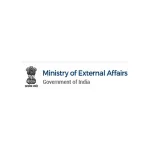Srinagar, July 04: Unsafe drinking water is the major cause of hepatitis A and E outbreaks in the rural areas in Kashmir, highlighting the lack of access to a safe and clean water supply.
The health officials said waterborne diseases like hepatitis A and E are a major public health concern suggesting proper prevention, surveillance and timely management.
In the past six months, from January to June, the health department took 535 samples in various areas of south Kashmir’s Shopian district, of which 102 tested positive for Hepatitis A Virus (HAV).
Similarly, during the same period, the department took 525 samples for Hepatitis E Virus (HEV). However, all of them turned out to be negative.
Chief Medical Officer (CMO), Shopian, Dr Arshad Hussain Tak said there are sporadic cases of viral hepatitis and currently there is no such major outbreak in the district.
Although the situation is not worrying, the significant number of cases reported in the district over the past six months has become a cause of concern.
In February, seven people were infected with Hepatitis A Virus due to contaminated water in two villages – Ganowpora and Watho – which are adjacent to each other and fall under medical block Kellar.
The contaminated water is the main cause of Hepatitis A and the water samples in the past have failed the water test. The water is not suitable for drinking use.
Last week, Hepatitis-A cases among children were reported in two villages of north Kashmir’s Bandipora district.
Officials said cases of jaundice were reported among children in Quil and Onagam villages following which the health department started a comprehensive sampling campaign to identify the presence of Hepatitis-A and Hepatitis-E viruses.
“Only one case was positive in 11 samples and that has recovered. In the Quil village, the water spring is contaminated. We are monitoring the situation. It is under control. We have asked the pediatricians and private clinics to report such cases,” said Dr Nabeel, district epidemiologist.
An official of the PHE (Jal Shakti) Department, Kashmir said the department routinely takes samples from consumer points and from water sources. “We have given field testing kits to Panchayats to carry out the tests and then report it,” he said.
The official said the department has labs and sample collectors who take the samples on a regular basis in different areas and get those analysed in district or sub-divisional testing labs. The PHE Department, he said, is in the process of upgrading all the systems to ensure that people get quality water in rural areas.





